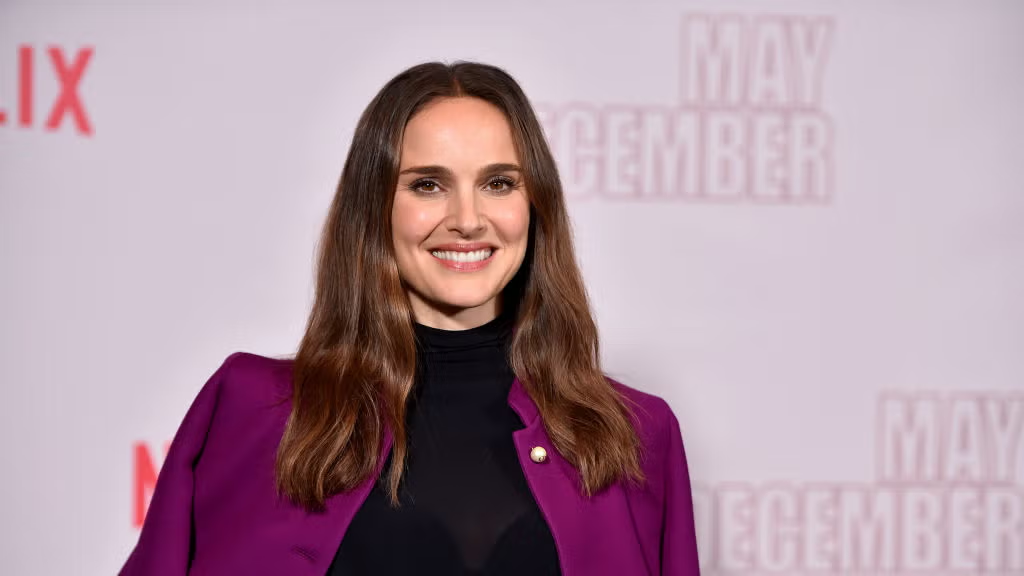
Natalie Portman
Introduction
Natalie Portman is a renowned actress, producer, and director who has made significant contributions to the film industry. With a career spanning over two decades, she has earned critical acclaim and numerous awards, including an Academy Award for Best Actress. Her roles in movies such as “Black Swan,” “V for Vendetta,” and the “Star Wars” prequel trilogy have established her as a versatile and influential figure in Hollywood. Beyond her acting prowess, Natalie Portman is also known for her advocacy for various social and political causes.
Understanding the sexualities of public figures like Natalie Portman is essential in the broader context of representation and awareness. In an era where diversity and inclusion are becoming increasingly important, it is crucial to recognize and respect the personal identities of those in the public eye. By exploring this topic, we aim to shed light on the importance of representation in media and how it can influence societal perceptions and attitudes towards different sexual orientations.
This article will delve into the subject of Natalie Portman’s sexuality, examining the available information and discussing its implications. We will also explore how public figures’ sexualities can impact their careers and public perception. Through this exploration, we hope to foster a deeper understanding of the complexities surrounding sexual identity and the significance of visibility in the entertainment industry.
Background Information
Natalie Portman, born Natalie Hershlag on June 9, 1981, in Jerusalem, Israel, is an acclaimed actress and filmmaker known for her versatility and intellect. Raised in a Jewish family, she moved to the United States at a young age and grew up on Long Island, New York. Portman demonstrated exceptional academic prowess, graduating from Harvard University with a degree in psychology while balancing a burgeoning acting career.
Portman’s rise to fame began with her debut film role in “Léon: The Professional” (1994), where she played the young protégée of a hitman. This early performance showcased her talent and garnered critical acclaim. She gained further recognition for her role as Padmé Amidala in the “Star Wars” prequel trilogy (1999-2005), which cemented her status in Hollywood.
One of her most celebrated performances came in 2010, when she starred in Darren Aronofsky’s psychological thriller “Black Swan.” Her portrayal of a ballerina descending into madness earned her the Academy Award for Best Actress, among numerous other accolades. Portman continued to diversify her portfolio with roles in blockbuster franchises such as “Thor” and independent films like “Jackie,” where she portrayed First Lady Jacqueline Kennedy.
Beyond her acting career, Natalie Portman is known for her intelligence and reserved public demeanor. She is often perceived as a private individual, balancing her life in the public eye with grace. Her media presence is marked by articulate interviews and a focus on significant social issues, including gender equality and animal rights. This combination of talent, intellect, and advocacy has solidified her reputation as one of the most respected figures in the entertainment industry.
Public Statements and Interviews
Natalie Portman, an acclaimed actress known for her roles in films such as “Black Swan” and “V for Vendetta,” has occasionally addressed questions about her sexuality in public statements and interviews. However, she has generally maintained a private stance on her personal life, including her sexual orientation. This approach reflects a broader trend among celebrities who choose to keep certain aspects of their personal lives out of the public eye.
In interviews, Portman has often focused more on her professional endeavors and advocacy work rather than delving into personal details. For instance, in a 2016 interview with the magazine “Marie Claire,” she emphasized the importance of privacy, stating, “I don’t think it’s anyone’s business what people’s sexuality is, to be honest.” This sentiment underscores her desire to keep her private life separate from her public persona.
Moreover, Natalie Portman has been a vocal advocate for LGBTQ+ rights, which sometimes leads to speculation about her own sexuality. In various public appearances, she has expressed support for marriage equality and LGBTQ+ visibility in the media. For example, during her acceptance speech at the 2011 Independent Spirit Awards, she praised the inclusivity and diversity of the independent film community, highlighting the importance of representation for all sexual orientations.
Analyzing her statements within the broader context of societal views on sexuality reveals a pattern of advocacy and privacy. While Natalie Portman has not explicitly labeled her own sexuality, her public remarks and actions reflect a commitment to supporting LGBTQ+ rights and maintaining a boundary between her personal and public life. This approach aligns with a growing recognition of the need for privacy and respect for individual choices regarding the disclosure of one’s sexual orientation.
Media Speculation and Public Perception
The media has long had an insatiable curiosity regarding the personal lives of celebrities, and Natalie Portman is no exception. Over the years, various tabloids and gossip columns have speculated about her sexuality, often without any concrete evidence to support their claims. These speculative articles range from suggestive headlines to in-depth pieces that attempt to decipher Portman’s sexual orientation based on her roles in films, public appearances, and interactions with other celebrities.
One notable instance occurred during the promotion of the film “Black Swan,” where Portman’s intimate scenes with co-star Mila Kunis fueled rumors and led to a flurry of speculative articles about her sexuality. Despite the fact that these scenes were part of a fictional narrative, the media’s portrayal often blurred the lines between Portman’s professional work and her personal life. This kind of reporting not only sensationalizes the subject but also contributes to public misconceptions and invasive scrutiny.
Public reactions to these speculative pieces have been varied. Some fans take the rumors at face value, engaging in discussions on social media platforms and fan forums, while others criticize the media for its intrusive and often unfounded speculations. The impact of such media coverage on public perception can be significant, as it shapes the narrative around a celebrity and often influences how they are viewed by the general populace.
The media’s approach to covering Natalie Portman’s sexuality highlights the broader issue of privacy invasion faced by public figures. While some fans may engage in discussions out of genuine curiosity or admiration, it is crucial to recognize the boundaries of respectful discourse. The focus should ideally remain on Portman’s professional achievements and contributions to the arts rather than her private life, which she has chosen to keep largely out of the public eye.
Importance of Privacy and Respect
In an era dominated by social media and constant public scrutiny, the importance of privacy and respect for celebrities, particularly regarding personal matters such as sexuality, cannot be overstated. When discussing Natalie Portman’s sexuality, it is crucial to approach the topic with a high degree of sensitivity and respect for her personal boundaries. The ethical considerations in speculating about or discussing someone’s sexuality are significant, as such discussions can often lead to unwarranted invasions of privacy and the spread of misinformation.
Respecting a celebrity’s privacy extends beyond the realm of simple courtesy; it is a fundamental ethical practice. Public figures like Natalie Portman deserve the right to keep their personal lives, including their sexuality, private if they so choose. The invasive nature of celebrity culture can lead to undue stress and pressure, impacting their mental and emotional well-being. It is important to remember that, despite their public personas, celebrities are individuals with the same rights to privacy as anyone else.
Natalie Portman has consistently shown a preference for keeping her personal life private. She has rarely addressed or disclosed intimate details about her sexuality, instead focusing on her professional work and advocacy. This approach highlights her desire to separate her personal identity from her public persona, a stance that deserves to be honored and respected by both the media and the public. For instance, Portman has often redirected conversations towards her work and causes she supports, rather than engaging in discussions about her private life.
Ultimately, respecting the privacy of celebrities like Natalie Portman sets a positive example of ethical behavior and promotes a culture of respect and consideration. By refraining from prying into personal matters that individuals choose to keep private, we contribute to a more respectful and humane discourse, both online and offline.
Representation in the Entertainment Industry
The entertainment industry has long played a crucial role in shaping societal perceptions of various issues, including sexuality. Over the past few years, there has been a noticeable shift towards more inclusive representation of LGBTQ+ characters and stories in Hollywood. This shift, while commendable, has not been without its challenges. The journey towards authentic representation has been fraught with resistance, tokenism, and the often superficial portrayal of LGBTQ+ identities.
Natalie Portman, a prominent figure in Hollywood, has contributed to this evolving conversation through her roles and advocacy. Although she has not publicly disclosed her sexuality, her choice of roles and support for LGBTQ+ causes speak volumes. Portman has portrayed complex characters that often defy traditional gender roles and heteronormative expectations, thereby challenging the status quo. For instance, her role in “Black Swan” delved into the psychological intricacies of a ballerina grappling with her desires and identity, offering a nuanced portrayal that resonated with many.
Beyond her acting, Natalie Portman has been a vocal supporter of LGBTQ+ rights. She has used her platform to advocate for equality and inclusivity, participating in various campaigns and initiatives aimed at amplifying marginalized voices. This advocacy is significant as it helps to normalize discussions around sexuality, fostering a more accepting and understanding society.
The broader implications of celebrities like Natalie Portman engaging in these conversations are profound. When public figures openly discuss or support LGBTQ+ issues, it can inspire others to do the same, creating a ripple effect that promotes acceptance and understanding. This visibility is essential for young individuals who may be struggling with their own identities, as it provides them with role models and a sense of belonging.
In essence, while there is still much work to be done, the entertainment industry’s move towards more inclusive representation, bolstered by advocacy from celebrities like Natalie Portman, is a step in the right direction. It underscores the power of media in shaping societal norms and highlights the importance of continued efforts towards genuine and diverse representation.
Natalie Portman’s Advocacy and Activism
Natalie Portman, celebrated for her versatility as an actress, has also made significant strides as an advocate for LGBTQ+ rights and inclusivity. Throughout her career, she has consistently used her platform to champion equality and support marginalized communities. Her advocacy work is not merely a facet of her public persona but a deeply engrained part of her identity, reflecting her commitment to social justice.
Portman’s involvement in LGBTQ+ advocacy is well-documented. She has shown unwavering support for marriage equality, participating in campaigns and events that promote the rights of LGBTQ+ individuals. In interviews, she has expressed her belief in the importance of equal rights for all, regardless of sexual orientation or gender identity. During the 2012 Human Rights Campaign Gala, she spoke passionately about the need for continued progress in the fight for LGBTQ+ rights, underscoring her dedication to the cause.
Her participation in the Time’s Up movement further highlights her commitment to inclusivity. Portman co-founded the initiative, which aims to combat gender-based discrimination and harassment, including within the LGBTQ+ community. By addressing these intersectional issues, she has reinforced her stance on creating a more equitable industry and society.
Portman’s advocacy extends beyond public speaking. She has actively supported organizations that work towards LGBTQ+ rights, such as the Human Rights Campaign and GLAAD. Her contributions have not only provided financial assistance but also elevated the visibility of these vital causes.
The impact of Natalie Portman’s activism on her public perception and career is profound. By aligning herself with progressive values and actions, she has garnered respect and admiration from diverse audiences. Her advocacy work enhances her image as a compassionate and principled individual, which, in turn, positively influences her career. For instance, her roles in films like “V for Vendetta” and “Black Swan” resonate with themes of freedom, identity, and acceptance, further solidifying her as an influential figure in both the entertainment industry and the realm of social justice.
Conclusion
In reflecting on the key points discussed throughout this article, we have examined Natalie Portman’s public statements, explored how the media has portrayed her, and highlighted her dedicated advocacy efforts. Natalie Portman has consistently shown a commitment to maintaining her privacy while also using her platform to support LGBTQ+ rights and advocate for broader societal acceptance. Her nuanced approach to discussing personal topics, including her sexuality, underscores the importance of respectful dialogue and the need to honor individuals’ boundaries.
Portman’s contributions to conversations on sexuality and representation extend beyond her personal life. As a public figure, her support for inclusive policies and her involvement in various activism efforts have positively influenced public discourse. The media’s portrayal of her has varied, but it often reflects a broader societal interest in celebrity lives, which can sometimes overshadow the critical work they do in advocacy and representation.
Natalie Portman’s impact on discussions about sexuality and representation is multifaceted. Her advocacy for LGBTQ+ rights, combined with her commitment to privacy, offers a model for how public figures can navigate personal and social responsibilities. More importantly, it emphasizes the need for a respectful and informed dialogue around personal topics, recognizing the significant role that representation plays in fostering an inclusive society.
Ultimately, Natalie Portman’s influence extends well beyond her roles on screen. By championing causes close to her heart and handling personal questions with grace, she continues to shape conversations about sexuality and representation in meaningful ways. Her work reminds us of the power of empathy, respect, and advocacy in driving social change.

